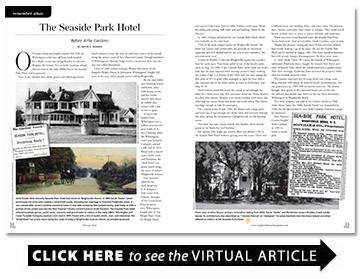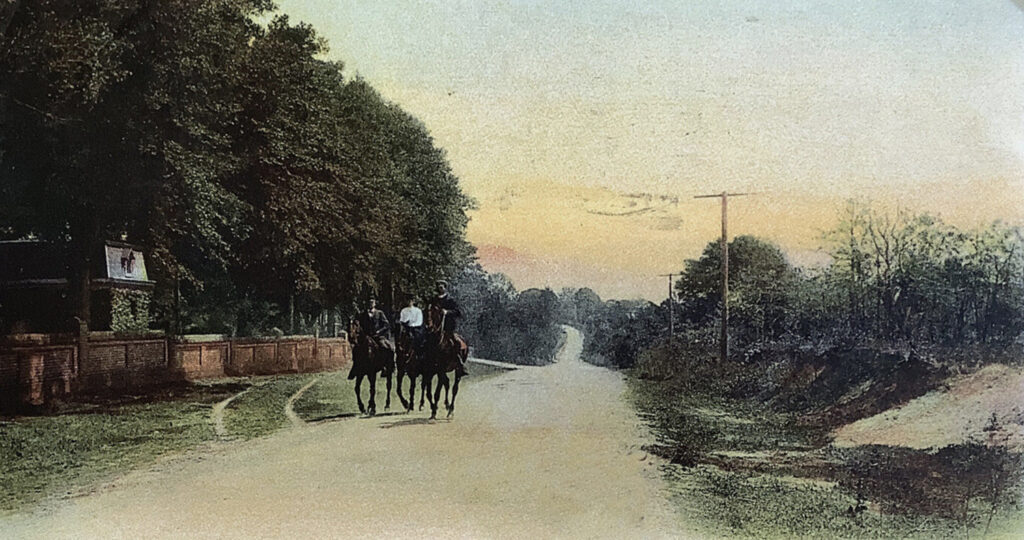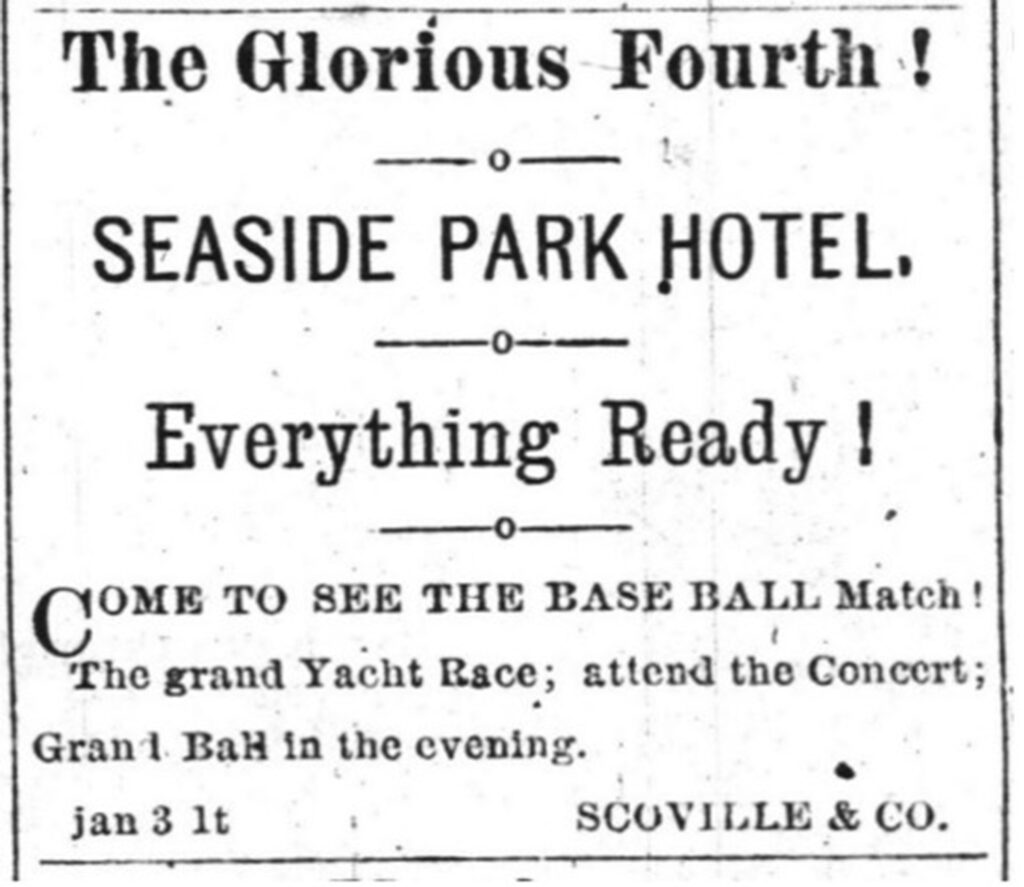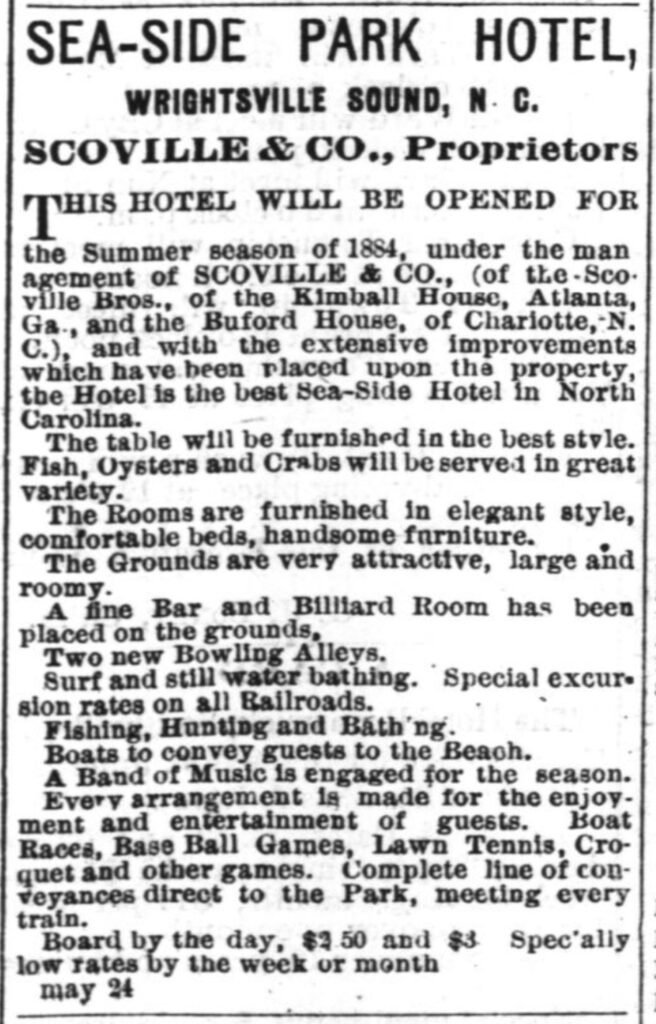The Seaside Park Hotel
Before Airlie Gardens
BY David A. Norris
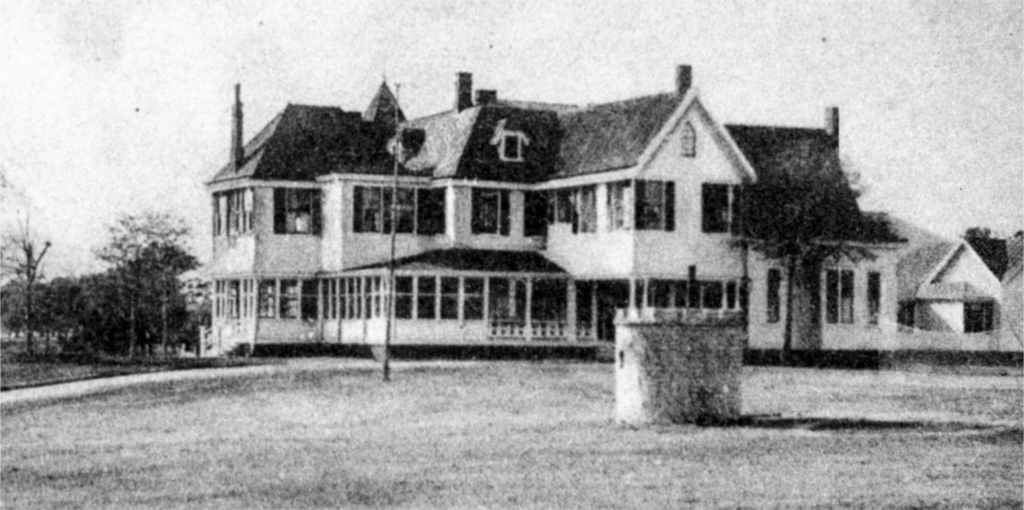
On many a long-ago bright summer day, folks in Wilmington with time off from work headed for a shady, scenic spot along Bradley Creek and Wrightsville Sound. Not to Airlie Gardens, which did not exist in the early 1880s, but to the Seaside Park Hotel and its grounds.
Even in the colonial days, shady groves and refreshing breezes lured visitors to enjoy the salty air and briny waters of the sounds along the eastern coast of New Hanover County. Enough members of Wilmington’s Masonic lodge lived or vacationed there that the area was called Masonboro.
Later, in 1800, Joshua Grainger Wright (the owner of the Burgwin-Wright House in downtown Wilmington) bought 320 acres in the area, which people started calling Wrightsville.
By the mid-1800s, new boarding houses and hotels, some with dining rooms and bar rooms, opened their doors to middle-class visitors with a day or two to spare.
A trip to the seaside from Wilmington was a tedious journey over poor roads, so it was a blessing when the Wilmington and Coast Turnpike Company opened a toll road in 1876. Paved with a mix of oyster shells, marl, and limestone, the “Shell Road” ran pretty much along the route of today’s Wrightsville Avenue.
One business aided by the Shell Road was F. A. Schutte’s Oak Grove Park. Schutte, manager of the Commercial Hotel in downtown Wilmington, bought part of “the Wright Place” from the Wright family and opened Oak Grove Park in 1880. Visitors could enjoy “Boats for sailing and rowing. Still water and surf bathing. Music by the Harpers.”
In 1881, Schutte advertised his new Seaside Park Hotel, which was evidently on the same land.
“One of the most elegant resorts on Wrightsville Sound,” the hotel was “roomy and comfortable, the grounds are absolutely capacious and well shaded and the sea view is very extensive,” the advertisements read.
A hotel by Bradley Creek and Wrightsville Sound was a perfect base for yacht races. Four boats sailed in one of the hotel’s yacht races on Aug. 23, 1882. Capt. Clayton Giles’ yacht Glide was in the lead, but the boat capsized when steering around a buoy marking the course. Capt. J. J. Fowler of the Frolic won the race, taking the first prize of $15 in gold. Giles managed to right his boat, bail it out, and pass one of the other yachts to come in third place, winning $2.50.
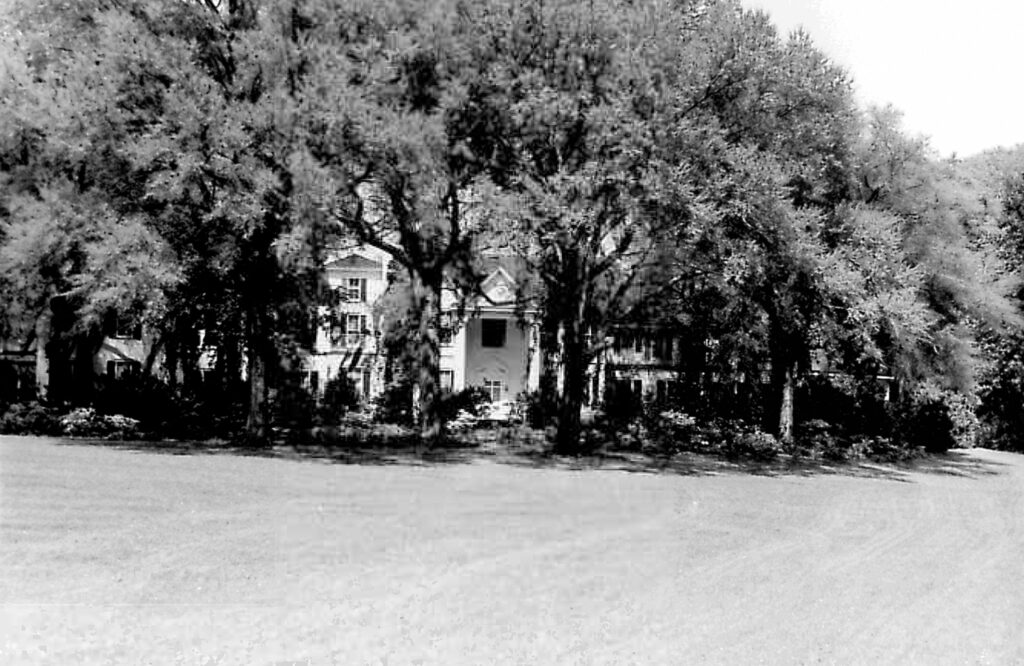
Hotel visitors could also cruise the sound or sail through the inlets for a little ocean trip. Two watermen sailed the Fanita, known as a first class sharpie. Sharpies were handy wooden work boats that often had two masts. Some had decks and small cabins. The Fanita was large enough to take 40 passengers.
On a typical cruise in July 1884, the Fanita took a large party and went out to sea through one of the inlets and returned through the other, giving the excursionists a delightful ride on the heaving ocean.
The hotel also had a steam launch, the Dudine, which ferried guests to the beach for “surf bathing.”
For anyone who might get seasick, there was plenty to do at the Seaside Park Hotel without getting near the water. There was a billiard room, two bowling alleys, and a bar room. On pleasant days, visitors could play lawn tennis or croquet. They could watch bicycle or boat races or enjoy a variety of bands and musicians.
There was even a local baseball team, the Seaside Park Nine. Teams from as far away as Columbia, South Carolina, came to play.
Despite the pleasant setting and array of fun activities, Schutte had trouble making a go of the place. He put the Seaside Park Hotel up for auction in August 1881. The hotel stayed in business, but with several changes of management, for three more years.
In 1884, Sarah “Sadie” W. Green, the fiancée of Wilmington millionaire Pembroke Jones, bought the Seaside Park Hotel and some of Seaside Park, which she transformed into a garden estate. After their marriage, Pembroke Jones renamed the property Airlie after his Scottish ancestral home.
The Joneses renovated the 30-room hotel into a large, rambling mansion with plenty of room for lavish entertainments. For one grand party in 1905, 450 invitations went out. The Joneses brought their guests in five chartered beach cars on the electric railroad that passed near Airlie on the way from downtown Wilmington to Wrightsville Beach.
The Airlie property was sold to the Corbett family in 1948. Airlie House (once the 1880s Seaside Hotel) was dismantled in 1958, but the spectacular 67-acre Airlie Gardens remained a popular attraction.
New Hanover County bought Airlie Gardens in 1999 to create a county park.
